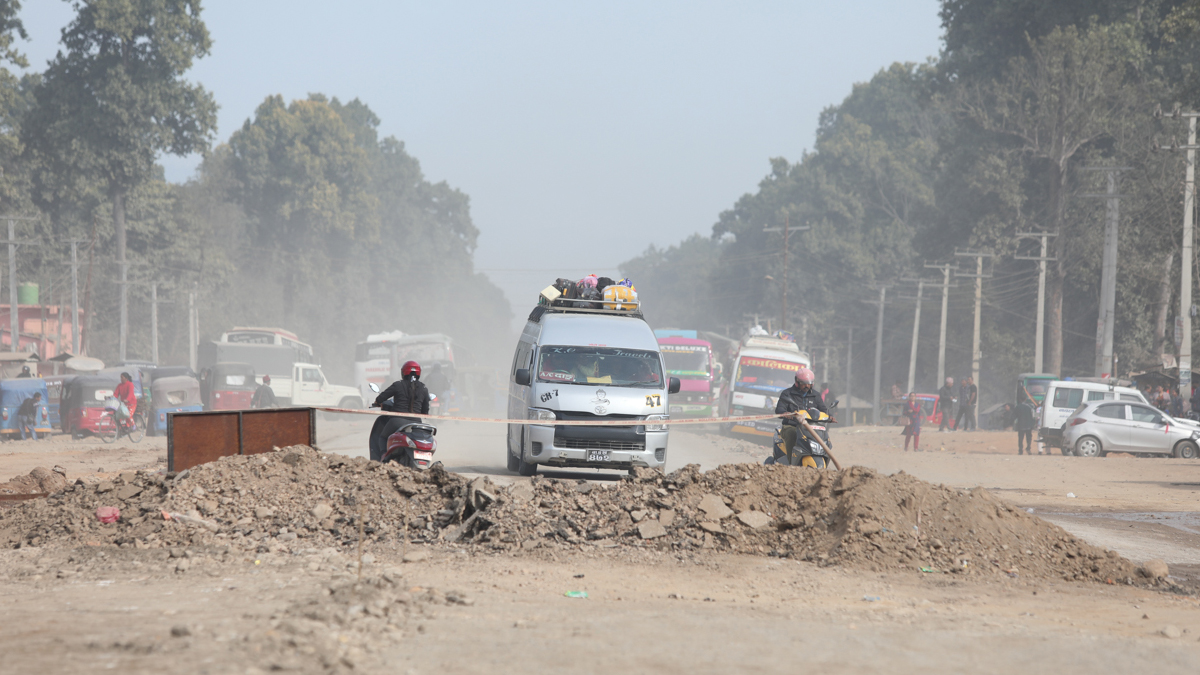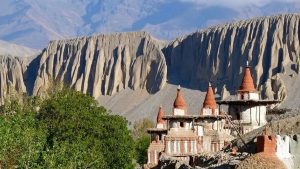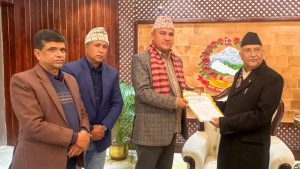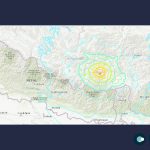The National Disaster Risk Reduction and Management Authority (NDRRMA) has issued an advisory against operating bus services at night in districts prone to heavy rainfall. Citing the weather forecast from the Department of Hydrology and Meteorology, the Authority has warned of heavy and torrential rainfall today and tomorrow in several districts and urged to keep buses off the roads during the night.
Natural disasters such as floods and landslides, exacerbated by torrential rainfall, are more dangerous at night. Therefore, the Authority has requested that nighttime bus operations be suspended to prevent potential tragedies.
According to the Department of Hydrology and Meteorology, 34 districts in the Koshi, Gandaki, Lumbini, and Sudurpashchim Provinces are expected to experience torrential rainfall over the next two days. The affected districts include Taplejung, Panchthar, Sankhuwasabha, Terhathum, Rasuwa, Chitwan, Sindhupalchowk, Dhading, Nuwakot, Myagdi, and Baglung. Additionally, Parbat, Syangja, Tanahu, Nawalparasi Purba, Lamjung, Gorkha, Kapilvastu, Rupandehi, Palpa, Gulmi, Dang, Banke, Bardia, Pyuthan, Arghakhanchi, Rukum Paschim, Kailali, Kanchanpur, Dadeldhura, Doti, and Baitadi are also predicted to experience heavy to torrential rainfall.
The Authority has also instructed the District Disaster Management Committee and Local Disaster Management Committees to coordinate efforts to relocate individuals in high-risk areas to safer locations. Stakeholders are urged to collaborate with government disaster management agencies for early preparedness and disaster response efforts.
All three security agencies—Nepal Police, Nepali Army, and the Armed Police Force—will be on standby in vulnerable areas for search, rescue, and relocation operations, according to the Authority.
The NDRRMA has advised the public to avoid travel unless absolutely necessary and urged those residing on riverbanks and in landslide-risk areas to remain highly alert considering the likelihood of disasters.














Comments